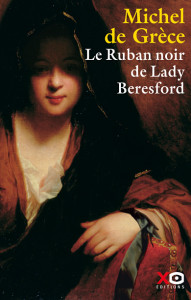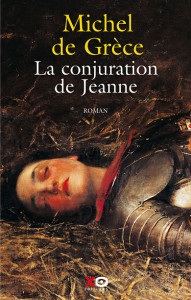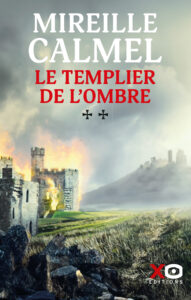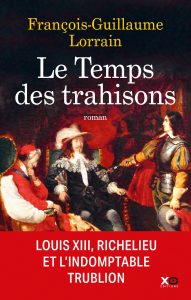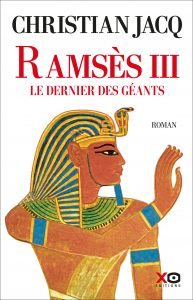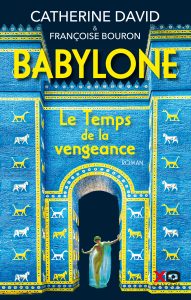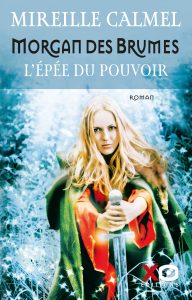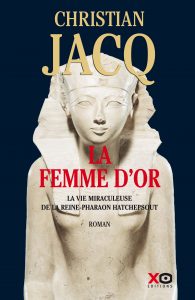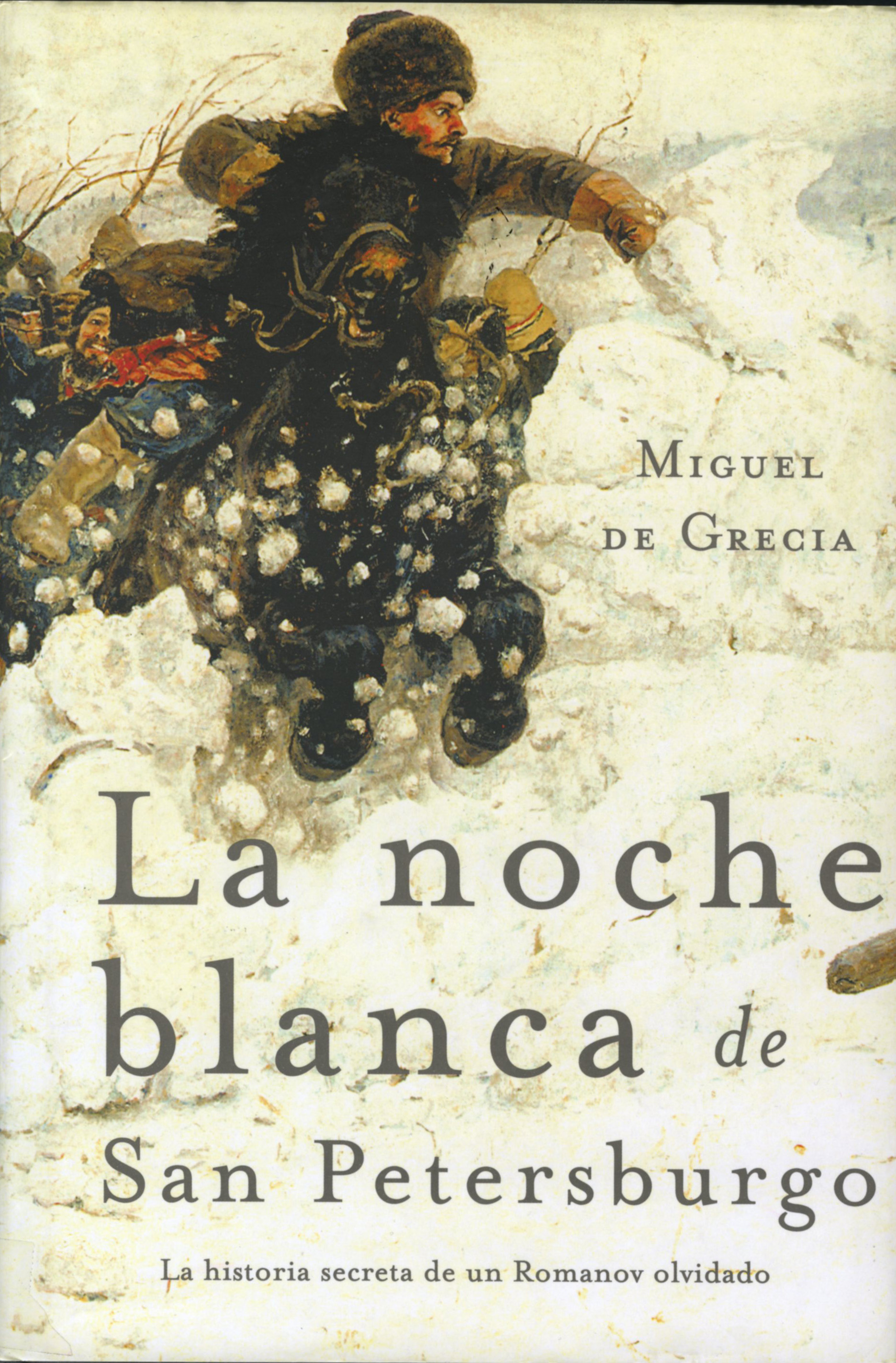Nicholas Konstantinovitch was the brother of my grandmother, the Grand Duchess Olga, who was espoused to George I, King of Greece… She had had numerous children that she duly raised in the Greek manner, except for the last child, my father, who was 25 years younger than his oldest brother, and this child she decided to raise in the Russian style. She took him to Russia with her every year, not the others, only this little one. My mother told me that he was completely Russian. That is certainly where my taste, my interest for Russia comes from.
So, Nicholas, the hero of White Night in St Petersburg, was the nephew of the emperor Alexander II, nonetheless no one knew it. Who spoke to you about him for the first time?
It was a Russian friend who by chance brought up his name in a conversation; ” Nicholas the brother of your grandmother… ” I responded that my grandmother had had three brothers and that none of them was named Nicholas. But he insisted and affirmed to me that there had been a fourth. Astonished, I thought that perhaps this Nicholas had died at a young age; that would have explained my ignorance. But no, he died at an advanced age, and if he is unknown it is because the Romanov family disowned him due to a great scandal.
I started by reopening the family files, the journals of my uncles, of my aunt: not a word. Consequently I called on the head of the Romanovs, my cousin Nicholas of Russia, who told me the story, at least the family version. The Grand Duke Nicholas was real but one did not speak of him because he had stolen the diamonds on his mother’s icon to give them to his mistress! At that time a servant was arrested and hurried off to Siberia. Four years later a pawnbroker put these famous diamonds up for sale, the police recognized them and the pawnbroker, when questioned, confirmed that it was the grand duke who had entrusted them to him… And the emperor Alexander II horrified at the idea of having punished an innocent man banished his nephew forever.
So, here we are with an unknown great-uncle falls out of heaven A short while thereafter my youngest daughter, Olga, took a trip to Tashkent where this Nicholas had been exiled and she brought me back a photo of his palace telling me that everyone there adored him and venerated him as a great patron who had given out colossal sums to irrigate the entire region. Who to believe? Was Nicholas a monster or a saint?
Then you started your own investigation…
This investigation was somewhat like a detective novel in the sense that all the trails led nowhere. It was as if evidence or information had been deliberately concealed. That is why the research was so long and so difficult whether in Moscow, or in St. Petersburg, also in France, and in all the countries that have a Russian community… For example there is an enormous library of Russian archives in Munich. I discovered a whole collection of archives at Columbia University about precisely the people in this story. I even found there the journal of one of the sons of the Grand Duke entitled Story of my Father, … a miracle! But the envelope was empty. I ran into these kinds of problems for a long time. Another example, the story of the servant hustled away to Siberia because of the diamond theft is completely false! Nicholas confessed one week after the deed and not four years later! See how legends are made…
How did you meet his granddaughter?
Through the intermediary of another Russian friend who one day made me aware of the existence of a cousin who lived in Moscow, a Romanov… This seemed impossible because a Romanov could never have survived in Moscow, she would have had to have been shot a long time ago! But there again my cousin Nicholas of Russia confirmed this information, indicating to me that she was just the grand daughter of the mysterious thief. The circle was complete… I asked this friend if he would organise a meeting for me.
What do you remember about this meeting?
This woman greatly impressed me, an incredible personality. She was 82 years old, very tall, with blazing blue eyes, an air of authority, a lot of elegance and she was penniless. She lived in a monstrous block of council flats in the outskirts of Moscow and I immediately nicknamed her the “Czarina of the suburbs”, because she reigned over all, and all revered her as a sovereign…. And what really moved me was that I was the first member of the family to visit her. The others have never paid any attention to her; she was nothing more than “the grand daughter of a thief”! She told me of her grandfather, told me all that she knew and she died shortly thereafter. Whereas she was in perfect health … it was as if she had been waiting for me…to pass the torch on to me.
Nicholas was an intelligent handsome boy, with the promise of a beautiful future, but at an early age he started to feel that he was different from the others, why?
His parents were eccentric enough… His mother was a little strange very much taken with occultism. And his father, a very brilliant man, was always gone. It is true that Nicholas had early on displayed a strange behaviour, let us say original, provocative, and he withdrew himself little by little from his brothers and sisters, even though one of his brothers, Dimitri, had like himself an extraordinary personality, Dimitri was one of the greatest poets of his time…
However the future of Nicholas was already determined. He is the grand duke, colonel in charge of several regiments at birth, and life would be divided between his military duties and the imperial receptions at the court. But one night at the opera he meets the beautiful Fanny.
He really loved women but this one completely turned his life upside down, and she was a courtesan! He who had kept innumerable mistresses had fallen in love for the first time, a veritable lightning bolt. And she who had previously lead a dissolute life, she who had an improbable number of lovers, she as well fell sincerely in love with him.
Just until a third person appears on the scene, the one named Savine…
Savine was a dark character, an intriguer, an adventurer; one could say a Machiavellian of sex. From his first meeting with the couple he disrupted the atmosphere installing himself with them in a ménage à trois, then by entreating Nicholas to commit thefts that became more and more significant, a little like a game at first with which he quickly mixed politics, until the moment when their business was discovered, a particularly sensational theft…And Nicholas was accused, then exiled…
It is nevertheless in exile that his legend was built…
Yes, because he thought what was lost was lost, and that he might as well make something of his life. And this is where he became the benefactor of Central Asia, undertaking considerable projects in the desert to design the irrigation of uncultivated lands, all of that in spite of the ill will of the imperial administration who were trying to thwart his plans day and night. Evidently in exile he led a volcanic personal life as well, mistresses, wives, children everywhere… In brief he accumulated scandals that were the joy of his observers and the distress of the imperial family. But it is also true that he was a very provocative figure who loved to defy the custom and convention…
This explains perhaps why he was the only Romanov spared by the Bolsheviks.
It is evident that in his situation the revolution meant his own liberation…. At first he was excited; it was like a dream… But very quickly he sized up the horror that was being organised…. All of his family was incarcerated. Even though his separation from the family had been consummated for a long time, it was infinitely painful for him… And when he asked the new authorities why he had been spared they responded: ” but you are the most illustrious victim of the imperial family, therefore you are honoured”. This certainly would not have pleased him because to be honoured by the killers would be no satisfaction… Moreover he died just before he could be arrested in his turn, because the Bolsheviks were preparing to do it, precisely because he really was too popular. So he died and the Bolsheviks, relieved, offered him a burial in the grand style. In the middle of the revolution a Russian grand duke was buried with all the honours! Quite recently the last tsar, Nicholas II was canonised by the Russian Orthodox Church, being interred with his family in 1998, as you related in your book, with a prestigious ceremony and in the presence of Boris Yelstin…
When will we see the rehabilitation of the grand-duke Nicholas? I would hope that this book makes him known and, since the imperial family disowned him, that people realise he really did exist. I sincerely believe he was a very romantic figure who was unjustly slandered. And in accordance with the wishes of his grand daughter, I would like to disperse the opprobrium that still weighs on him. Because she often told me, cousin Talia: “he was innocent, he was innocent”. I hope to have succeeded in proving that he was.

